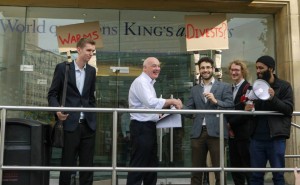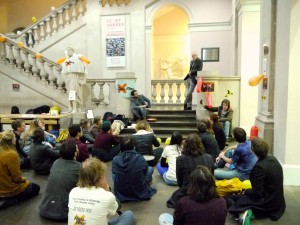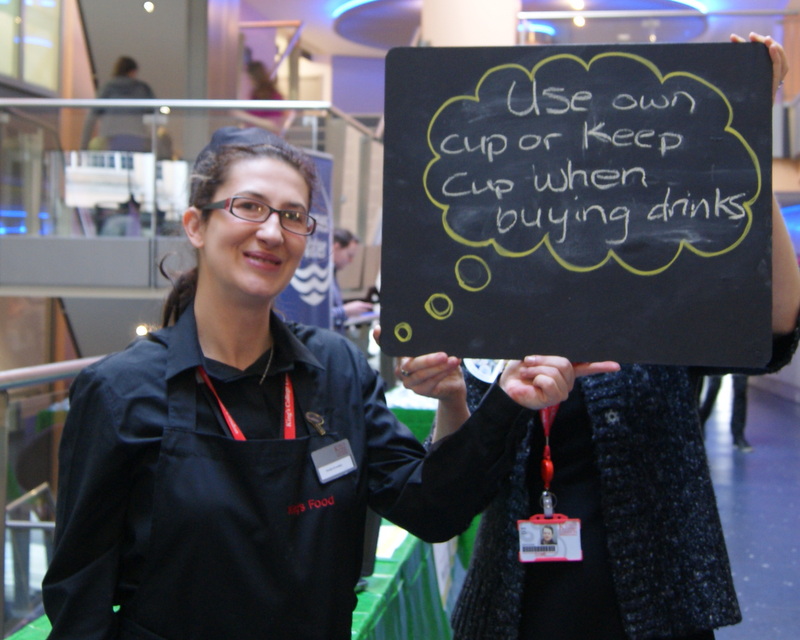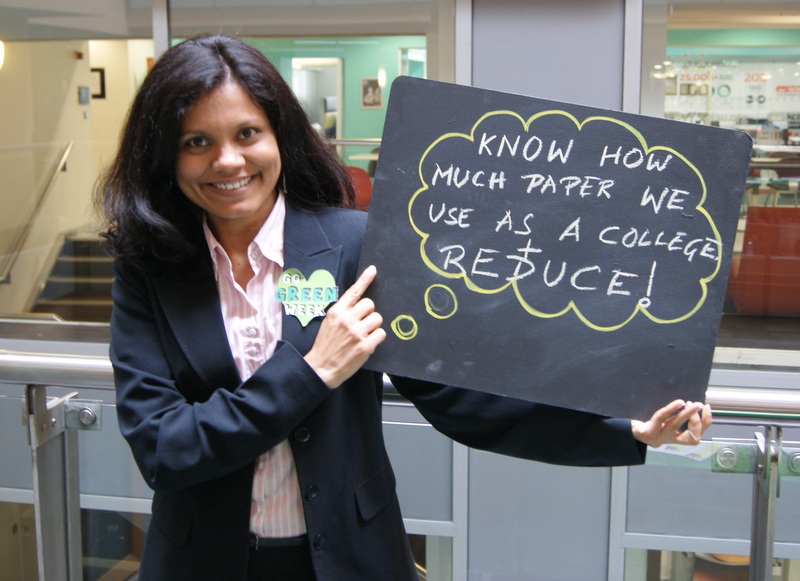[Our first weekly guest blog comes courtesy of Fossil Free KCL, a student-led campaign urging King’s to divest its holdings from the fossil fuel industries. The authors are Titus Michaud, a master’s student in Public Law, and Mark Horowitz, currently pursuing a PhD in Neuroscience. The views presented do not necessarily reflect those of King’s Sustainability]

The Fossil Free movement at King’s seems to have ventured into cartoonish superhero and supervillian territory of late. It was supposed to be a cut and dry campaign, reliant on diligent spreadsheet work and rational pleas for long term prosperity and safety.
It was not to be.
The Fossil Free movement at King’s has been growing rapidly towards resolution. Our petition to demand that our university sell its shares in the biggest polluters on earth has soared to 1200 signatures, we have assembled some of the most vibrant and passionate young men and women of the university into the campaign, and together we have gathered the energy to lead our university into a sustainable 21st century.
At its peak, however, Fossil Free ran straight into a concrete block of status quo twentieth century thinking in the form of our Vice-Principal, a man who spent thirty years of his career at British Petroleum (BP). So it was to an ex-executive of BP that we made our case for the university to sell its shares in BP. Not surprisingly, we were told that the university would not divest and were given a series of rationalisations as to why business-as-usual was the best course of action. We think this supervillian’s chief power is his ability to slow down action under the banner of ‘pragmatism’. He is global warming’s answer to Mr Freeze from Batman: locking us into business as usual trajectory to runaway climate change.
As in any good cartoon, for every supervillian there is a superhero. When it comes to Fossil Free there is one global superhero shoulders above the rest – Bill McKibben. Like Superman, he has a Clark Kent side. He began life as a journalist for the New Yorker, The New York Times, The Atlantic and the Boston Globe, focusing on environmental issues. He wrote the first book about climate change for a popular audience in 1989, The End of Nature, and spent the next twenty years writing about threats to the environment, hoping people would be compelled by his lucid communication of the science and do something about it.
It took him two decades to admit the Clark Kent act wasn’t working. So he ditched the glasses and founded the 350.org movement, the first ever global grassroots environmental campaigning organisation. It takes its name from the concentration of carbon dioxide in the air (in parts per million) compatible with a safe environment (today the concentration is 400ppm!). If people weren’t paying attention to his books, perhaps they would pay attention to 5,200 rallies in 181 countries. This was what the organisation achieved on its first day of planned demonstrations in 2009. Since then the movement has moved from strength to strength as the pent up frustration of people around the world appalled at the lack of political action on climate change has found an emergency valve in the form of collective demonstration and direct action.
In fact, the more appropriate superhero is Captain Planet – this is very much a story of our powers combined doing far more than we could ever hope to achieve by ourselves. 350.org took on the Keystone XL pipeline, descibed as“the fuse to the biggest carbon bomb on the planet”, and has successfully prevented its completion for four years. Bill and 350.org also realised the environment would never win if they were to just play defence – protesting against every new oil pipeline and every environmentally destructive development. We would also have to play offence.
So Bill and 350.org launched the Fossil Free divestment movement – a way to bring increased awareness of the influence of the fossil fuel industry on the direction our world was travelling. It would not be able to financially bankrupt the industry – it is simply too big, too rich, and too strong. But institutional leaders around the world – including universities, churches, charities and ethically minded businesses – could vote with their investments to show that we no longer condoned what these companies are doing and their plans for the future (more – much more – of the same). Perhaps this would create a viable context for political action at a national and international level and a much needed price on carbon would be set.
It may have sounded fanciful three years ago but today no one is laughing. A paper from Oxford University released last year found that it was the fastest growing divestment movement in history. More importantly, out of the 41 divestment movements that it analysed – concerning pornography, tobacco and Apartheid in South Africa – every single divestment movement had produced the outcome it sought in the form of political action. Univerisities, churches and institutional investors around the world are divesting their shares in fossil fuel companies – totalling 50 billion dollars so far – with new commitments emerging each week . There are thousands of active campaigns across four continents. Exxon Mobil, the biggest oil and gas company in the world, is not laughing – it has just launched a public relations attack against the campaign.
Although we are but one dot in a world wide map of campaigns we were hurting a little after meeting a tentacle of BP wedged into the leadership of our university. What we needed was a little boost and out of the sky that boost came in the form of Captain Planet himself. Last Tuesday he visited King’s to lead a flash mob sit-in to stress the importance of univerisities leading the way in this important movement.
So we sat outside the Great Hall of the Strand Campus, decked out in festive manner with balloons, banners declaring that ‘Real Leaders Divest from Fossil Fuels’, with both Sappho and Sophocles in solidarity in their Fossil Free shirts listening to Captain Planet tell us that King’s would inevitably divest, it was only a matter of time, but that they would need a push.
He emphasised the point that as important (and necessary) are the individual actions we take to reduce our environmental footprint, ultimately what is needed is collective action to affect political change. We had an opportunity as members of a globally visible and respected university to make a change with global effects by going no further than our own campus. King’s 8 million pounds invested in BP, Shell, and Exxon Mobil might only be a drop in the bucket but its decision to divest would have a huge effect on the conversation around the world about what sort of planet we want to live on. Even our very own Mr Freeze acknowledged our campaign was pushing conversation in the right direction.
You may have seen our mildly amusing poster alluding to the strong support for the campaign by King’s most famous alumnus, Desmond Tutu. Bill McKibben made the point that the university can’t continue to ignore the voice of the man who face greets you at its front door.
At his speech at LSE later that evening, one thing Bill said was that, as an introvert and writer, organising was not really his thing. He did not think he was good at it and had bumbled through. He had decided that the urgency of the situation demanded that he do things he wasn’t exactly comfortable with.
I think a lot of us sitting there were pleased to here this from a global superhero – actually, given his nervous, halting way of speaking and his academic bent, perhaps Professor Planet is more appropriate – that he didn’t quite know what he was doing. Because we sure as heck don’t!
However, like him, we are determined to keep bumbling along because we think the importance of dealing with climate change means that we have to do what we can, even if we are not superheroes.
We know how this comic book story ends but it seems our spreadsheet powers alone won’t do it. If you would like to help – whether superhero or not – we can be contacted on facebook at Fossil Free KCL.
– Titus Michaud and Mark Horowitz









 sustainable future – mission possible?’ The distinguished panel comprised of both internal and external speakers – Aaron Re’em, Senior Account Director from
sustainable future – mission possible?’ The distinguished panel comprised of both internal and external speakers – Aaron Re’em, Senior Account Director from 



